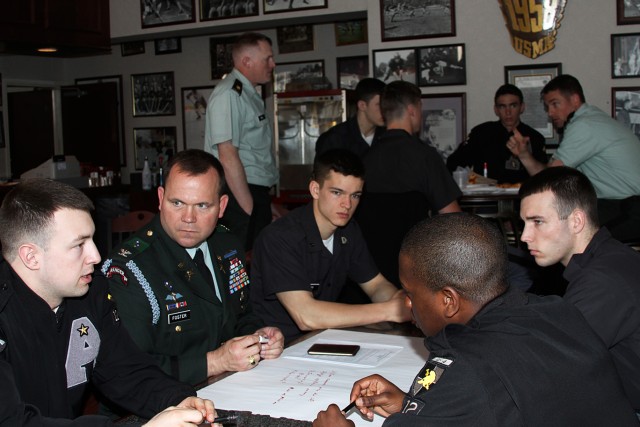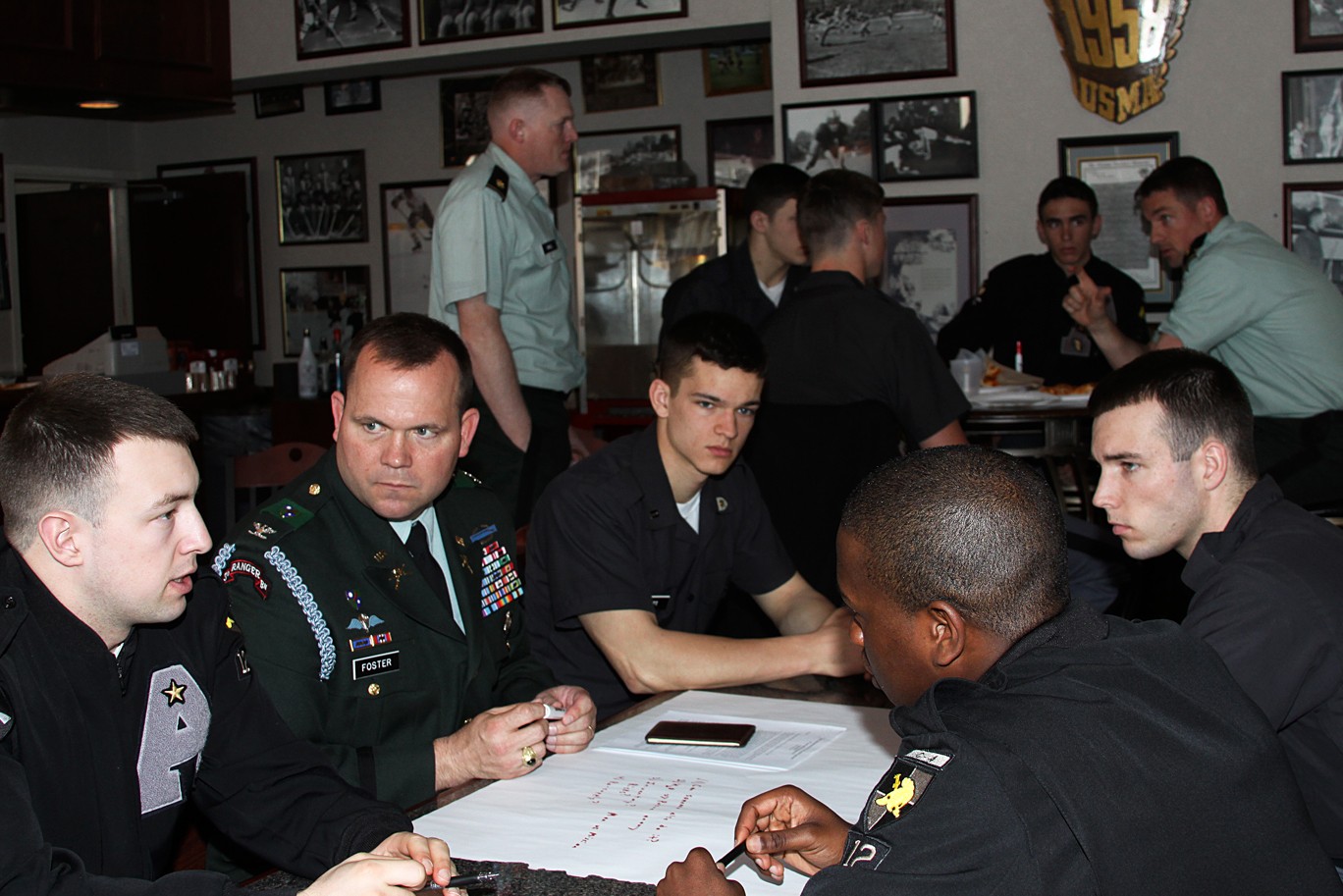WEST POINT, N.Y. (April 13, 2011) -- Imagine you are a platoon leader in Iraq and your mission is to clear 30 houses across a bridge where you just lost a member of your platoon through enemy fire, your platoon is tired after 13 hours of work and low on water. What should you do'
This was the scenario presented to the Class of 2012 during a Leader Challenge Forum presented by the Center for Company-level Leaders April 6 at the Firsties Club.
One of the ways West Point instructors and tactical officers' help with cadet leader development is by designing resources that will bring to West Point, and across the Army, the experiences of those who have amassed lessons learned in combat.
The forum allowed members of the Class of 2012 to benefit from those lessons with the aid of experienced faculty members and tactical officers.
The class watched a video of a young platoon officer in combat having to make a decision regarding completing a mission. The video showed a real-life situation where a platoon officer needed to make a decision whether or not to go forward when his platoon is exhausted, low on water and with low morale due to loss of a platoon member, or to find another alternative.
The cadets then discussed a possible decision in a "What would you do" situation with other members of their class and the facilitators. After the discussion, the video was continued to what the platoon leader's decision was.
"With this leader challenge project, we go out into the field to find out what young officers are up against," Maj. Seth Hall, C-4 tactical officer, said.
In 2007, the CCL interviewed more than 300 junior officers in Iraq and Afghanistan to design, develop and implement selected PME2 lessons that engage cadets, current officers in the operational Army and facilitators in discussions around actual leadership challenges being faced today by junior officers, according to their website(http://companycommand.army.mil/aboutccl/aboutCCL.htm).
The real-life platoon leader generally talks about his experience in writing or in video, which is then brought back as a resource for leader development.
"We use the platoon leader's experience by utilizing the "World CafAfA" technique," Hall said. "The cadets form small groups with a facilitator to discuss what they would do in the same situation. Then, after 20 minutes, the group changes to talk with another facilitator. This allows cadets to cross pollinate ideas and key concepts with their classmates and with their instructors."
Cadets are able to take leader challenges online to learn of real-life situations, read the answers of other experienced platoon leaders, hear the rest of the story and then discuss the scenario in small-group settings with a coach or mentor what they would do in the same situation.
The forum included an unsuspecting cadet who was asked to stand up in front of the forum in a role-playing scenario and call his TAC officer, as if he were in the field, to explain the situation.
One of the ways that the CCL connects to leaders in the field is through online professional forums such as Company Command and Platoon Leader forums, which bring leaders to the military and West Point to share their experiences to improve individual and company effectiveness.


Social Sharing